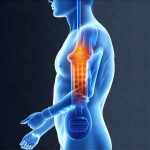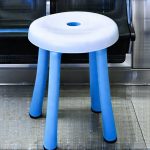Our modern lifestyles are increasingly characterized by prolonged periods of sitting – at work, during commutes, while enjoying entertainment, and even during leisure time. This sedentary behavior has become so ingrained in our daily routines that many don’t realize the far-reaching implications it holds for overall health. While we often associate lack of exercise with negative outcomes, the act of sitting itself is now being recognized as a significant contributor to various health issues, and surprisingly, even digestive problems. It’s not simply about what we aren’t doing while sitting; it’s about how the very act of prolonged stillness impacts our body’s natural functions.
The digestive system, in particular, relies on movement for optimal function. Think of it as a complex machine that requires regular ‘shaking’ and stimulation to efficiently process food. When we remain seated for extended periods, this vital process slows down, potentially leading to discomfort, bloating, gas, and even more serious digestive disorders over time. This article will explore the connection between excessive sitting, poor digestion, and increased gas production, offering insights into why it happens and what can be done to mitigate these effects. We’ll delve into the physiological mechanisms at play and provide practical strategies for incorporating more movement into your day.
The Physiological Impact of Sitting on Digestion
Prolonged sitting dramatically alters several key physiological processes crucial for healthy digestion. When you sit, your abdominal organs become compressed, reducing space and hindering their natural movements. This compression can directly impede the peristaltic motions – the wave-like muscle contractions that move food through the digestive tract. A slower transit time means food remains in the system longer, providing more opportunity for fermentation by gut bacteria, which is a primary cause of gas production. Essentially, the digestive system gets ‘lazy’ and less efficient.
Furthermore, sitting reduces blood flow to the abdominal region. Reduced circulation impacts the delivery of oxygen and nutrients essential for optimal digestive function. The muscles responsible for digestion require adequate blood supply to contract effectively and move food along. A lack of movement also decreases muscle tone in the abdomen and core, further weakening these crucial peristaltic movements. This creates a vicious cycle: less movement leads to weaker muscles, which leads to slower digestion, and ultimately more discomfort.
The impact isn’t limited to just the gut itself. Sitting can affect the diaphragm, a key muscle involved in breathing and also plays a role in abdominal pressure changes that aid digestion. When we sit slumped over, diaphragmatic function is restricted, further contributing to impaired digestive processes. This compromised functionality adds another layer of complexity to the issues arising from prolonged stillness. If you experience symptoms like hoarseness or sore throat, it may be related to acid reflux.
How Excessive Sitting Contributes to Gas Production
Gas production within the digestive system is a natural byproduct of food breakdown and bacterial fermentation in the colon. However, excessive sitting amplifies this process in several ways. As mentioned previously, slower digestion provides more time for bacteria to ferment undigested carbohydrates, resulting in increased gas production. This fermentation creates gases like hydrogen, carbon dioxide, and methane, leading to bloating, abdominal discomfort, and flatulence.
The compression of the abdomen during sitting can also physically trap gas within the digestive tract, making it harder for the body to expel naturally. Imagine trying to release air from a tightly squeezed balloon – that’s similar to what happens when your abdominal organs are compressed. This trapped gas contributes to feelings of fullness and pressure, often leading to significant discomfort.
Moreover, prolonged sitting can affect the balance of gut bacteria. A sedentary lifestyle is often associated with a less diverse microbiome, meaning fewer beneficial bacteria and potentially more gas-producing strains. A healthy gut microbiome is essential for efficient digestion and minimizing gas production. By reducing physical activity, we inadvertently contribute to imbalances that exacerbate digestive issues. Can food sensitivities also play a role in overall health?
Strategies to Counteract the Effects of Sitting
Addressing the impact of excessive sitting on digestion requires a multi-faceted approach focused on increasing movement throughout the day and promoting healthy digestive habits. It isn’t about eliminating sitting entirely – for many, that’s unrealistic – but rather about mitigating its negative effects through mindful adjustments. Here are some practical steps you can take:
- Incorporate Regular Movement Breaks: Set reminders to get up and move every 30-60 minutes. Even a short walk around the office or doing a few simple stretches can make a significant difference. Consider using a standing desk, if feasible, to alternate between sitting and standing throughout your workday.
- Prioritize Physical Activity: Aim for at least 30 minutes of moderate-intensity exercise most days of the week. This could include brisk walking, jogging, swimming, cycling, or any activity you enjoy that gets your heart rate up. Regular exercise stimulates digestion and strengthens abdominal muscles.
- Mindful Posture Correction: Be conscious of your posture while sitting. Avoid slouching and aim to maintain a neutral spine with your shoulders relaxed. Proper posture allows for better organ function and reduces compression within the abdomen. Connection and calm can also be beneficial during mealtimes.
Dietary Considerations for Improved Digestion
While movement is crucial, dietary choices also play a significant role in minimizing gas and improving digestion. Certain foods are more likely to cause bloating and gas production than others. Identifying and managing these trigger foods can significantly improve digestive comfort.
- Focus on Fiber Intake: Gradually increase your fiber intake from whole grains, fruits, and vegetables. Fiber adds bulk to stool, promoting regularity, but rapid increases can initially lead to increased gas.
- Limit Gas-Producing Foods: Reduce consumption of beans, lentils, broccoli, cabbage, onions, carbonated beverages, and artificial sweeteners, as these are known to contribute to gas production in many individuals.
- Stay Hydrated: Drinking plenty of water aids digestion and helps prevent constipation, which can exacerbate bloating and gas. Aim for at least eight glasses of water per day. It’s important to consider if digestive stress is also contributing to discomfort.
The Role of Core Strengthening Exercises
A strong core is essential for supporting abdominal organs and facilitating healthy digestive function. Weak core muscles contribute to poor posture, reduced peristalsis, and increased discomfort. Incorporating regular core strengthening exercises into your routine can significantly improve digestion and reduce gas production.
- Plank Variations: Planks engage multiple core muscles simultaneously and help strengthen the entire abdominal region.
- Abdominal Crunches & Twists: These exercises target specific abdominal muscles, improving their strength and tone. Be mindful of proper form to avoid injury.
- Yoga and Pilates: Both disciplines emphasize core engagement and promote flexibility, which can further enhance digestive function. They also encourage deep breathing, which aids in diaphragmatic movement. Consistent core work is not just about aesthetics; it’s about functional strength for optimal digestion. Can clutter affect your mental and physical wellbeing?
Ultimately, the relationship between excessive sitting, poor digestion, and gas production is a complex one, but understanding the underlying mechanisms allows us to take proactive steps towards mitigating these effects. By incorporating more movement into our daily routines, making mindful dietary choices, and strengthening our core muscles, we can significantly improve our digestive health and overall well-being. If you suspect GERD might be contributing to your issues, seek medical advice.


















